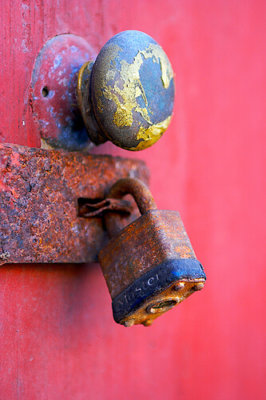Keeping Secrets From Family – Is it Always Bad?

By: Steven Depolo
by Andrea M. Darcy
Keeping secrets from family is not only distracting, it can stop us from connecting to others and leave us lonely and misunderstood.
But if you have a secret, do you owe it to your family to share it? Not necessarily.
Why do we keep secrets ?
There are, sadly, those amongst us who keep secrets out of a perverse sense of pleasure in manipulating others. But such individuals suffer narcissistic personality disorder or sociopathy.
In general we keep secrets because we are trying to protect those we love, we are afraid of being judged, or because we feel scared and ashamed.
Is it bad to keep a secret from your family?
It depends, really, on what the secret is, and who your family is, too. It’s true that it is only in the telling of secrets that we are able to process a hidden experience, start to heal, and move on. But unfortunately, not all families are the right place to start that healing.
If you are keeping a secret to protect other family members, it’s important to be honest with yourself if this is a fair choice. Are you really protecting them, or are you just making your own life easier? Are you honouring the other person’s autonomy, or assuming you know what they would want?

By: Terry Johnston
If your secret is something you hide out of a fear of judgement, then consider if the secret is serving you in a positive way without actually hurting others. Sometimes we keep secrets in order to feel exciting and different. This can be a part of growing up and figuring out who you are as an individual, separate from your family. Perhaps, for example, they want you to be a lawyer but you are secretly taking acting classes at night. When you are ready, you’ll share.
Is your secret hidden because it actually will hurt others? Perhaps you had an affair, or stole money. In this case it can be advisable to ‘come clean’ – but you might need support first, and timing can be important.
As for secrets rising from a childhood trauma, this is when it is especially important to be sure sharing with family is right for you at this time. If your instinct has been to not tell them, it might mean that you feel a need to protect yourself from unhealthy family dynamics. The last thing you need, after all, is more trauma, or to feel unsupported.
Questions to ask before you tell your family your secret
Try asking these questions first:
1.What is my intention for sharing this secret right now?
Why tell it now and not before? If you are doing it out of spite, to punish someone, or to get attention, then it’s better to wait.
2. Is this the right timing to tell my secret?
Family reunions or parties where alcohol is involved are generally the wrong times to share, as are events which are to celebrate someone else, such as birthdays.
3. Am I in the right mindset to share this secret?
If you have been drinking, or if you are angry or upset with someone, it is better to tell the secret another time.
4. Is this the right family member to share my secret with?
Do you feel safe around them? Can you trust them? Have they been someone who has proved themselves loyal in the past, or not?
5. Am I really ready to tell this secret?
Have you spent time working on your own feelings and thoughts about this secret? Are you able to talk about it calmly and with conviction? Or is is possible that you might end up attacking others mid-telling, and push away those whose support you wanted?
6. Do I feel truly safe to tell this secret right now?
If you feel any anxiety, if your stomach feels sick, your heart is pounding? Then it might be you just aren’t ready to share, or this is not the time or place.
The ‘truth telling myth’
Our culture has gone from one where secrets were considered ok, to one where telling secrets is seen as a great ‘cure all’.
It’s important to recognise that revealing your secret does not instantly set everything right. It can instead be the beginning of a much longer journey of healing.
Like a Pandora’s box, you might find that once you start talking, you discover other memories that were hidden. This is especially the case with things like childhood abuse.
Your secret can also trigger other people’s secrets, and other parties involved might have a different perspective on what happened. You might have to suffer through not being believed.
Do I need help with this secret?
Secrets are better out than in. But if you feel fear, shame, anger, or resentment at the thought of sharing your secret, or you just aren’t sure you can navigate it all alone, it might be time to reach out for support.
A trained counsellor or psychotherapist can provide an impartial, safe, and supportive environment for you to process unresolved emotions around your secret. They will support you to find your inner strength and self-esteem again.
They can also help you understand the dynamics of your family. This means that when you do decide you are ready to tell them, not only will you be in a calmer and more powerful state of mind, you will have the communication skills to share in a way that feels safe and useful.
Harley Therapy connects you to experienced, professional, and kind therapists in three London locations, or worldwide via online therapy.
__________________________________________________
 Andrea M. Darcy is a mental health and wellbeing expert with training in person-centred counselling and coaching. She often writes about trauma and relationships, and works as a consultant helping people plan their perfect therapy journey. Find her on Instagram @am_darcy
Andrea M. Darcy is a mental health and wellbeing expert with training in person-centred counselling and coaching. She often writes about trauma and relationships, and works as a consultant helping people plan their perfect therapy journey. Find her on Instagram @am_darcy





